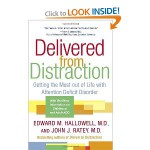Annual Report of AMHF November 1, 2021, to October 31, 2022; on November 1, 2022, The American Mental Health Foundation will be 99 years in existence thus rapidly moving into 100. Few not-for-profit organizations can make this claim. This is the Tenth Annual Report of The American Mental Health Foundation (AMHF), an organization formed in […]
By:
Evander Lomke

For three days last week American Mental Health Foundation Books shared a booth with its distributor, Lantern, at the annual BookExpo America—which is held at the Jacob Javits Center on New York City’s West Side. (New York remains the publishing capital of North America, even with the multitude of changes the industry has seen.) The […]
By:
William Van Ornum, Ph.D.

Newly minted pastor Ed Stetzer, writing in CNN.beliefnet, writes of his dealings with a man in his congregation. This person would often disappear for days at a time, and later Stetzer would hear that the fellow had spent hours praying the psalms. Later the man killed himself, leading Stetzer to reflect of aproaches churches could […]
By:
William Van Ornum, Ph.D.

As Edward R. Murrow said, there are two sides to every story. Our previous probing into an increase and acceleration in funding for research into the brain waxed positively. A different viewpoint—now taken by major pharmaceutical industries—suggests that their interest in brain research is waning. Reuters reports the following: “Many pharmaceutical companies harbor deep doubts […]
By:
William Van Ornum, Ph.D.

Edward Hallowell and John Ratey have published a follow-up to their successful book Driven to Distraction. On a hopeful note, it is titled Delivered from Distraction. The first book was written in the 1990s. It contains much good advice on ADHD: diagnosis, medications, telling it apart from other conditions as well as finding it in […]
By:
William Van Ornum, Ph.D.

Big Brothers Big Sisters is a national organization which matches volunteers to children who could use a supportive adult in their life. Children in foster care, in single parent families, children with an incapacitating illness–are the kinds of youngsters who might be given priority status. The sponsoring agency has been known to do a careful […]
By:
William Van Ornum, Ph.D.

Too many times we view medication and psychological therapies as either/or treatments. Many times people will try to avoid any medication for even a severe mental health problem. Their reasons are always worth noting: perhaps there is a realistic fear of side effects, or a desire to work things out in a trusting relationship. Perhaps […]
By:
William Van Ornum, Ph.D.

The Individuals with Disabilities Act (IDEA) lists conditions present in a child that can qualify him or her for special services in the educational system in preschool. These are: *Chromosomal Abnormalities (e.g., Down syndrome) *Syndromes (e.g., fetal alcohol syndrome) *Neuromuscular Disorder (e.g., cerebral palsy, spina bifida) *Central nervous system (CNS) abnormality (e.g., caused by bacterial/viral […]
By:
William Van Ornum, Ph.D.

There are occasions when a child will need to be tested—not by a school or clinical psychologist, but by a neuropsychologist. This occurs when a child displays a brain-based disorder, which can mean an entire spectrum of disorders. Learning disabilities, developmental disabilities, head injuries, cancer, and even gunshot wounds are among the kind of problems […]
By:
William Van Ornum, Ph.D.

Many people still have the idea that psychological testing is mostly practiced in clinics and hospitals, and have images of psychologists sitting with clipboards giving Rorschach Inkblot tests and intelligence tests. In actuality, most psychological testing is now done in schools, and it has a preventive function: to identify mental retardation, learning disabilities, emotional disorders, […]
By:
William Van Ornum, Ph.D.
The American Psychological Association has announced, in the January 2012 issue of American Psychologist, “Guidelines for Assessment of and Intervention With Persons of Disabilities.” This document lists twenty-two practice-guidelines for psychologists who work with persons displaying disabilities of various kinds. The task force for this report was chaired by Kurt F. Geisinger of the University […]
By:
William Van Ornum, Ph.D.
Susan Cain, a corporate lawyer, has just published a book Quiet: The Power of Introverts in a World That Won’t Stop Talking. She writes: “Imagine a two-year-old who greets you with a huge smile, offering a toy. Now here’s another child who regards you gravely and hides behind his parent’s leg. How do you feel […]
By:
William Van Ornum, Ph.D.
Elaine Aron pioneered new ground over a decade ago when she wrote the trade book The Highly Sensitive Person; this was followed up by a workbook, a book on parenting children who are highly sensitive, and even a primer for therapists. Highly Sensitive Persons (HSP), in her view (which incorporates findings from important developmental psychologists […]
By:
William Van Ornum, Ph.D.
Many remember Curt Schilling for his postseason successes with the Boston Red Sox, including one in which he pitched while in pain and with a bloodied sock. Schilling recently announced that he has formed his own video-game company, which will be releasing a fantasy-oriented game for gamers. The story behind the story here is that […]
By:
William Van Ornum, Ph.D.

















 Host Companion
Host Companion